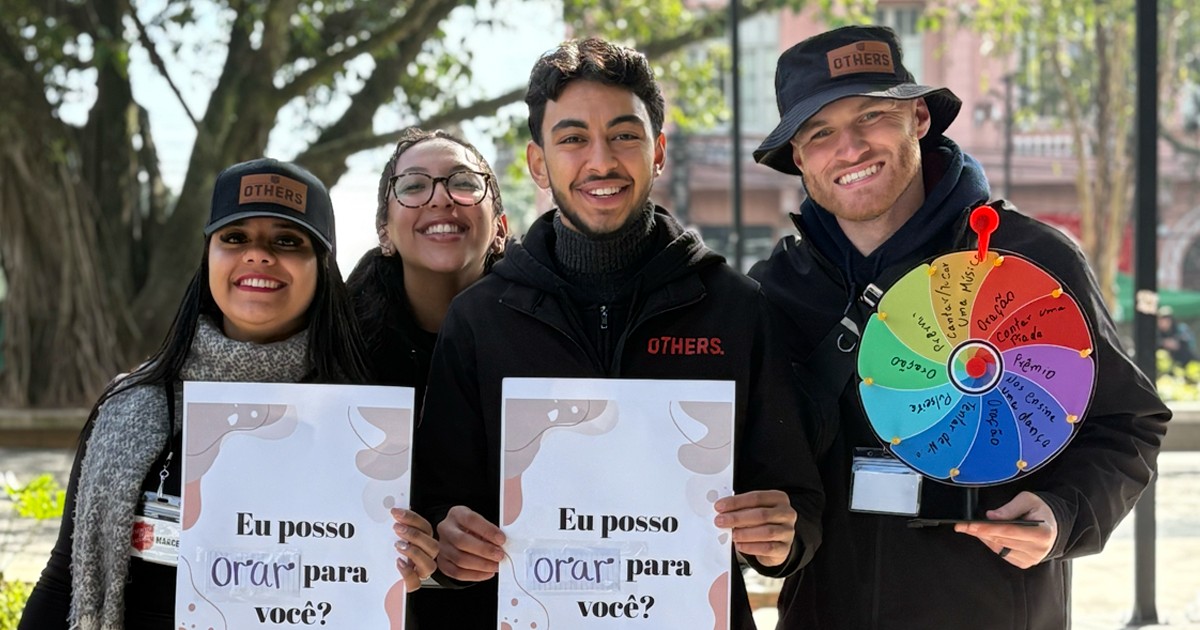From time to time, every church struggles with attracting and keeping new members. While it's not about numbers or filling pews in the church, a healthy church is a growing church. Jesus had a lot to say about making disciples. Needs have to be met. Souls have to be sought. A ministry niche has to be cultivated.
What is your corps' niche? I don't mean a lure to pull people in. I mean what does it look like for us to follow Paul's instructions and become “all things to all people” (1 Corinthians 9:22)? How can we not only stop new people from leaving, but keep them coming back and getting involved in our ministries?
Here are five reasons newcomers leave our corps after only a few visits. It's not an exhaustive list, but rather a primer for a complicated topic. How can we devise fresh approaches that welcome and retain new members?
1. Felt Unwelcome
It seems obvious and yet first-time visitors to our corps need to be shown friendliness. Generally, they don't want to stand up and be recognized as a “new visitor,” but they would like a few people to talk to them and show an interest in who they are. They want people to remember their names. No one should ever feel unwelcome in our buildings. After all, we are here to minister to the whosoever … right?
2. Lack of Fellowship
I love it when people linger and talk after the service. It's a sign that people care for one another, that there is real fellowship in the corps. Visitors can sense when there is division instead of unity. I'm not talking about some sort of “sixth sense” here; it's just obvious in certain types of body language that something is off about the fellowship … or lack thereof. New people want a place to fit in, a sense of belonging. They want to go out for coffee or lunch together following a service. But if division in the corps is causing a quick exit after the service, you can be sure new people will disappear very quickly, too.
3. No Ministry Geared for Their Generation
We serve many generations in our corps. We need to maintain a balance in how we minister. If you have 30 young adults in your congregation, there ought to be something specific to reach them at a deeper level during the week. If you have a primarily senior corps and only a handful of teens, make sure you have something for the seniors as well as the teens. When a newcomer visits your corps, is there a ministry that feeds them spiritually and a place for them to serve?
4. Army Lingo Not Explained
Sunday announcement: “Next week the DC will be here to install the YPSM. Don't forget about DYB coming up shortly in preparation for youth councils.” I understood what that was about and perhaps you did, too—but the new person in the back pew has no clue what we're talking about. Foreign terminology in a new place can be intimidating and can make a newcomer feel like an outsider. This doesn't mean we have to stop the announcements, but don't use Army lingo without explaining the terms.
5. Members Fear New Visitors
Some corps members do not like change, and new people are a form of change. They may complain that we need “new blood” in our corps and yet when that “new blood” walks through the door, they treat them with as much disdain as a new worship song. They might not even know they are acting this way. Some corps members are intimidated by new people—they may even feel they might lose power because the new person seems more energetic, charismatic or educated, and begin to show subtle aggression. The newcomer will sense hostility without understanding why. Change is hard, but how can we keep new people coming back if we're afraid of change—even for the good? Education needs to take place.
Be sensitive to the needs of new people. We don't have to cater solely to them, but we ought to make our worship spaces available and friendly so that all are welcomed, the new and the not-so-new. Beware of possible hurdles new people might have to jump in order to “fit in.” Finding a new place to worship isn't easy, especially if this new person has never gone to church before. We are the body of Christ and as we extend his love to new people, may we display to them and each other genuine love, compassion and grace. May our fellowship be so sweet that we linger in each other's company. May we seek to minister to all people. Finally, may we be open to change and, with the grace of God, usher in new soldiers for this mighty work.
Captain Scott Strissel lives in Brainerd, Minnesota. He is an active blogger and contributor for the purpose of encouraging and challenging the Salvation Army world. Read his blog at pastorsponderings.org.
What is your corps' niche? I don't mean a lure to pull people in. I mean what does it look like for us to follow Paul's instructions and become “all things to all people” (1 Corinthians 9:22)? How can we not only stop new people from leaving, but keep them coming back and getting involved in our ministries?
Here are five reasons newcomers leave our corps after only a few visits. It's not an exhaustive list, but rather a primer for a complicated topic. How can we devise fresh approaches that welcome and retain new members?
1. Felt Unwelcome
It seems obvious and yet first-time visitors to our corps need to be shown friendliness. Generally, they don't want to stand up and be recognized as a “new visitor,” but they would like a few people to talk to them and show an interest in who they are. They want people to remember their names. No one should ever feel unwelcome in our buildings. After all, we are here to minister to the whosoever … right?
2. Lack of Fellowship
I love it when people linger and talk after the service. It's a sign that people care for one another, that there is real fellowship in the corps. Visitors can sense when there is division instead of unity. I'm not talking about some sort of “sixth sense” here; it's just obvious in certain types of body language that something is off about the fellowship … or lack thereof. New people want a place to fit in, a sense of belonging. They want to go out for coffee or lunch together following a service. But if division in the corps is causing a quick exit after the service, you can be sure new people will disappear very quickly, too.
3. No Ministry Geared for Their Generation
We serve many generations in our corps. We need to maintain a balance in how we minister. If you have 30 young adults in your congregation, there ought to be something specific to reach them at a deeper level during the week. If you have a primarily senior corps and only a handful of teens, make sure you have something for the seniors as well as the teens. When a newcomer visits your corps, is there a ministry that feeds them spiritually and a place for them to serve?
4. Army Lingo Not Explained
Sunday announcement: “Next week the DC will be here to install the YPSM. Don't forget about DYB coming up shortly in preparation for youth councils.” I understood what that was about and perhaps you did, too—but the new person in the back pew has no clue what we're talking about. Foreign terminology in a new place can be intimidating and can make a newcomer feel like an outsider. This doesn't mean we have to stop the announcements, but don't use Army lingo without explaining the terms.
5. Members Fear New Visitors
Some corps members do not like change, and new people are a form of change. They may complain that we need “new blood” in our corps and yet when that “new blood” walks through the door, they treat them with as much disdain as a new worship song. They might not even know they are acting this way. Some corps members are intimidated by new people—they may even feel they might lose power because the new person seems more energetic, charismatic or educated, and begin to show subtle aggression. The newcomer will sense hostility without understanding why. Change is hard, but how can we keep new people coming back if we're afraid of change—even for the good? Education needs to take place.
Be sensitive to the needs of new people. We don't have to cater solely to them, but we ought to make our worship spaces available and friendly so that all are welcomed, the new and the not-so-new. Beware of possible hurdles new people might have to jump in order to “fit in.” Finding a new place to worship isn't easy, especially if this new person has never gone to church before. We are the body of Christ and as we extend his love to new people, may we display to them and each other genuine love, compassion and grace. May our fellowship be so sweet that we linger in each other's company. May we seek to minister to all people. Finally, may we be open to change and, with the grace of God, usher in new soldiers for this mighty work.
Captain Scott Strissel lives in Brainerd, Minnesota. He is an active blogger and contributor for the purpose of encouraging and challenging the Salvation Army world. Read his blog at pastorsponderings.org.










Comment
On Monday, August 3, 2015, Julie said:
On Friday, March 6, 2015, Yamilet Corea said:
I would like make you more questions about this topic .
thanks for your prompt answers.
Blessing
On Friday, February 13, 2015, Ketland Dyer said:
One elderly lady in particular, an ex-officer, was single-handedly responsible for driving three dozen visitors away over the course of a year. No matter how hard anyone tried to convince her to be nicer to visitors, the moment they walked in the door, she would start to glare at them. The band leader was no better - she would talk loudly to her friends, within earshot of any visitors, about how dreadful "those people" were.
Most of the corps were friendly and inviting. But, the memory that stuck in all those visitors minds was one of a bitter, nasty person who very obviously did not want them to come back. So sad.
By the time I left for a more friendly corps in the next town, they had shrunk from a corps of 50 to about 15 regular members. What I regret the most is that for a while, those people had me seeing their point of view, and I was starting to behave like them. It really is true that a few bad apples can ruin the whole barrel.
On Thursday, February 5, 2015, Laura Johnson said:
On Thursday, January 29, 2015, av said:
On Thursday, January 29, 2015, LT.FRANCIS MWASHI said:
there is need for ushers who can easily identify visitors in our corps during services.There main responsibility being welcoming visitors and taking there contacts for follow up.
2.After church sessions where we can easily recognise the newcomers or the needs of our members.
3.Calling the newcomers during weekdays and appreciating their coming.
1. I also recommend a suggestion box where we can easily get first hand information from people.
In kenya west we count ourself best in numbers because we have wards, which easily identifies new people and visit them during the week and again reaching peoples' needs is easy due to small groups
AM LT MWASHI FRANCIS FROM KENYA WEST TERRITORY
On Wednesday, January 28, 2015, Deryck Robertson said:
On Wednesday, January 28, 2015, R Quayle said:
On Wednesday, January 28, 2015, Mutinta said:
On Tuesday, January 27, 2015, MUISYO FRANCIS said:
This is very guiding..very true that a corps by its spiritual and population growth.
Thank you for expounding.
from kawethei cirps kangundo division.machakis county.kenya east territory.
muisyo francis..
On Tuesday, January 27, 2015, Linda Thompson said:
So after 60 years of SA service, I am now a Methodist where I was welcomed with open arms and accepted just as I am. Whosoever, not in my experience.
On Tuesday, January 27, 2015, CJ said:
Fortunately during the meeting there was a time for testimony and I was able to bring fellow greetings from my corps and declare God's grace. That was all it took, after the service I was inundated with genuine expressions of Christian welcome. So what made the difference? I doubt that it was, that I had established my army credentials. I put it down to the fact that the culture of the corps allowed limited space for folk to initiate conversation. They weren't unfriendly but just unaccustomed to how to start those conversations.
It's not hard folk, simply when new folk arrive use language like "Welcome to worship/church. Thank you for coming," Introduce yourself and then allow them to dialogue. It works wonders.
On Tuesday, January 27, 2015, Drummer Dude said:
I belong to one of the largest corps in the USA Central Territory, and come from a well-known family. I feel like I am a blight to everyone, so I just keep my head down and do my job as a bandsman in my corps band, hear a message, then go straight home. I really wish that we did a better job surrounding everyone involved in a broken home--not just one person over another.
On Tuesday, January 27, 2015, Dawn Ferguson-Little said:
On Tuesday, January 27, 2015, Donna Kapalka said:
On Tuesday, January 27, 2015, karen dipple said:
Leave a Comment